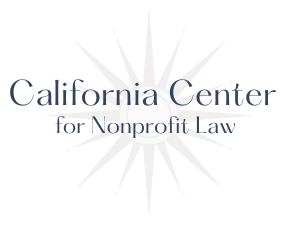
Unexpected Costs of Charity Solicitation Registration Requirements for Charitable Organizations
State charity solicitation registration laws can result in unexpected expenses for charitable organizations, particularly if they are mounting nationwide fundraising campaigns or seeking donations in multiple states. Most states have charity solicitation laws that mandate some form of registration, along with payment of a fee.
Furthermore, states with registration systems also typically require periodic renewal of registration, which requires recurring fees. Strict timeframes for registration and renewal can lead to the assessment of late fees, and the complexity of the information required for registration may also lead to outsourcing expenses.
For instance, California’s Supervision of Trustees and Fundraisers for Charitable Purposes Act, Gov. Code, § 12580 et seq., requires charities to register with the Attorney General’s Registry of Charities and Fundraisers within 30 days of receiving charitable property in the state. Various expenses accompany this registration requirement.
Registration Fees
The initial fee for charity solicitation registration in California is $50. However, the annual renewal registration fee is based on the charity’s total revenue and ranges between $25 and $1,200. A raffle registration fee is $30, and the annual registration fee for commercial fundraisers, fundraising counsels, and commercial coventurers is $500.
Many local jurisdictions, including cities and counties, also require charities to obtain licenses before holding public fundraisers or soliciting donations. These licenses also typically require payment of a fee.
Late Fees
Most states impose late fees for failing to submit renewal registration forms and fees promptly. For instance, California charges $25 each month after the deadline by which a charity must file its renewal registration form and pay the requisite fee passes.
Outsourcing Expenses
Compliance with charity solicitation registration laws and other applicable state laws can be complex and challenging. As a result, some charities choose to hire professionals to handle the registration and reporting requirements, which can be expensive. For example, California law requires all charitable organizations to file a copy of their annual IRS informational return along with the renewal registration form. However, charities also must maintain audited financial statements and keep them available for inspection by the Attorney General.
Furthermore, any charity that collects more than 50% of its annual income and more than $1 million in charitable contributions from donors in California is required to file the Registry’s Annual Financial Solicitation Report in addition to the annual renewal registration form.
Additionally, all charities are subject to certain disclosure requirements in their solicitations. Commercial fundraisers also must comply with additional disclosure requirements.
In many cases, hiring professionals such as accountants and lawyers is the best way to ensure compliance with state laws; however, the costs of these professional services can be high. As a result, charities should determine what professional services they need and build them into their annual budget.
Frequently Asked Questions (FAQ)
Does California law exempt any charities engaging in fundraising in the state from registration?
Although California law does not exempt charitable organizations from registration, it does exempt commercial coventurers in some cases. To qualify for exemption, the commercial coventurer must enter a signed written contract with the charity before making any charitable representations. It must also transfer and provide an accounting of all funds received from the representations to the charitable organization, as specified by law.
Are charities subject to any other reporting requirements under California law?
In addition to the Attorney General’s reporting requirements, charities must remain in good standing with the California Franchise Tax Board and the Internal Revenue Service. Charities with tax-exempt status must maintain that status at both the state (Franchise Tax Board) and federal (IRS) levels by following all applicable requirements.
Are charities subject to any other limits on fundraising aside from registration, payment of fees, disclosure requirements, and reporting requirements?
Yes, depending on the type of fundraiser involved, state law may place other limits on the fundraiser. For instance, a charity can fundraise through a poker tournament if it has conducted business in California for at least three years and is exempt under one of several sections of the Revenue and Taxation Code. Tournaments may occur only once a year and last up to five hours; they must be conducted in person and cannot be held online. Registration and approval by the Attorney General’s Bureau of Gambling Control is also required.
Call the California Center for Nonprofit Law Today
The laws that govern charitable organizations are complex and ever-changing. We aim to inform you of legal changes that affect your charitable organization. If you need legal advice or assistance, we are here to help. Contact an experienced nonprofit lawyer today. Contact the California Center for Nonprofit Law offices at (949) 892-1221, email us at info@NPOlawyers.com, or visit our website for more information today. We offer a wealth of experience handling the unique legal issues that charitable organizations routinely face.
